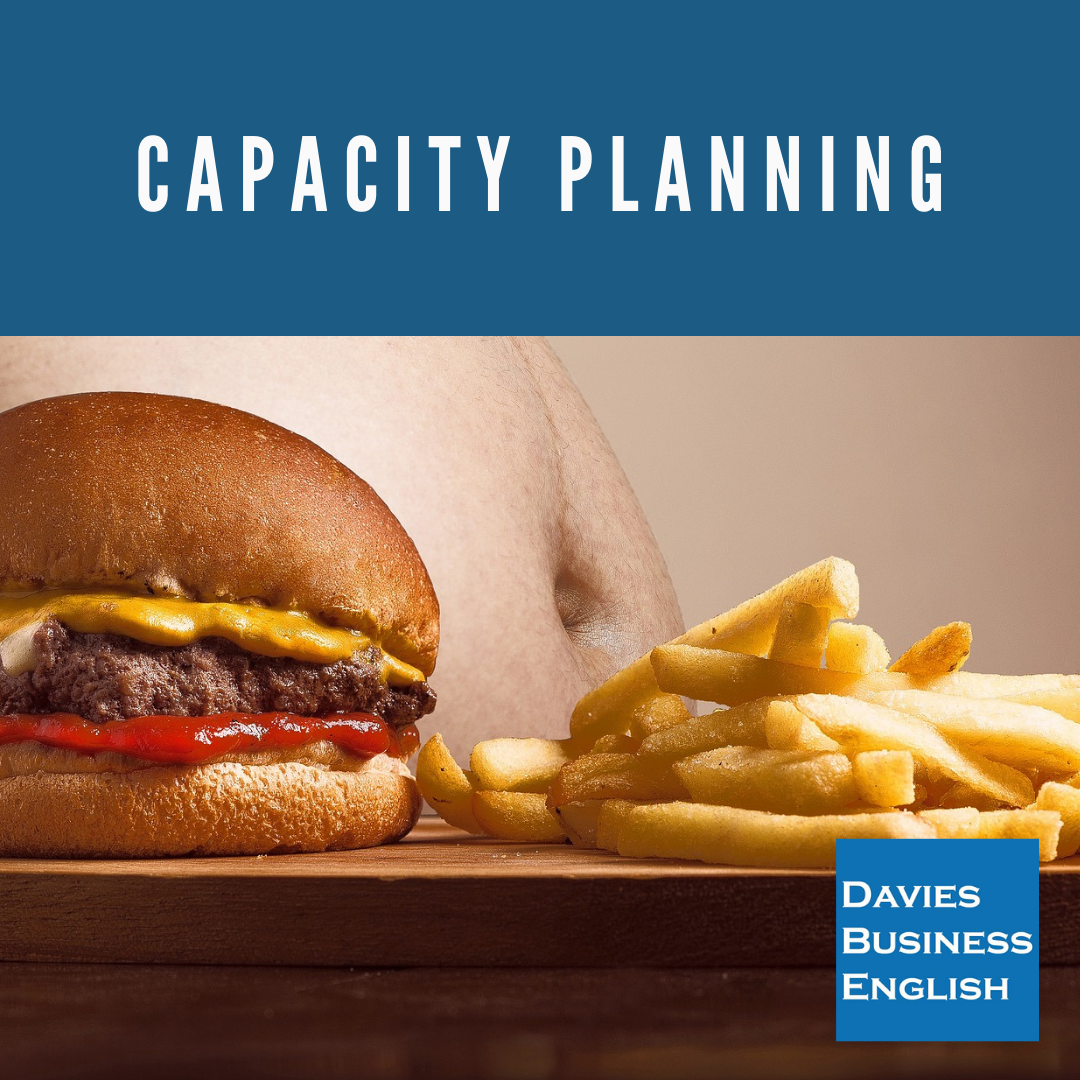This week, I would like to draw your attention to one of my favourite podcasts called Business Anchors Podcast by Dan and Lloyd Knowlton who run a video and social media marketing agency in southeast England called, appropriately, Knowlton.
I really like the podcast because it is both informative and funny. You might also like to follow them on LinkedIn and watch some of their videos which are also very funny.
Today, I want to highlight episode 94 of the podcast which you can find here https://knowltonmarketing.co.uk/capacity-planning/ with a transcript so you can listen, read and look up any vocabulary or phrases that are not familiar to you. You can message me and ask me if there is anything that you are not sure about and I will do my best to explain.
This episode of the Business Anchors Podcast is about capacity planning. This is a term that is used to describe the process of planning and allocating work in relation to the amount of time available to do it. In this way, it can be seen whether there is too much stress or too much slack in the business.
This is a topic that is close to my heart because, I often have conversations with people who want training for themselves or their teams but when we look at the calendar for a good time to do the training, we find that everyone already feels stretched to the limit and finds it difficult to ‘make time’ for training, without even thinking about any additional preparation or follow-up time before and after our training sessions. I also lost my job once because of a lack of capacity planning, but more on that in a moment.
People often talk about ‘time management’ but I always think that this is a misnomer as we cannot manage time - we all get 24 hours a day and there is nothing we can do to change that. We can only manage resources and organise, delegate or prioritise tasks so that we achieve what needs to be done before any deadlines.
Dan and Lloyd make some important points and useful suggestions on how this can be done and how the results can be used by owners, managers, freelancers etc., thus knowing how much time is available, how long things take and scheduling ALL activities at work to know when we can or need to take on more work. It is also useful as a tool for telling your boss, even if you are self-employed or the CEO, i.e. you are the boss, that you are already working at 110% capacity etc. As an employer, it can be used for planning the growth of a business and employing new personnel or outsourcing.
So, about that job I lost. One reason that this is such a favourite topic of mine is that many years ago, I had a job which only lasted a few months because capacity planning wasn’t carried out and I didn’t find out until after I had joined the company as the Project Manager. I soon discovered that the company owner didn’t know how much work we had - we had lots of contracts running but they were nearly all about to expire in about a month. When I sat down with the boss and went through everything in detail, he realised that they were about to run out of work. The following Monday, my birthday, I returned to the office to be told that the company could no longer afford to pay my wages. It was one of those big ‘life lessons’ for me and a moment when I didn’t know whether to laugh or cry. I decided to laugh.
So remember, if you want to run your business or team more effectively, and maybe even organise some training, it is a good idea to use a capacity planning system to see how time is being used in the business or department.
